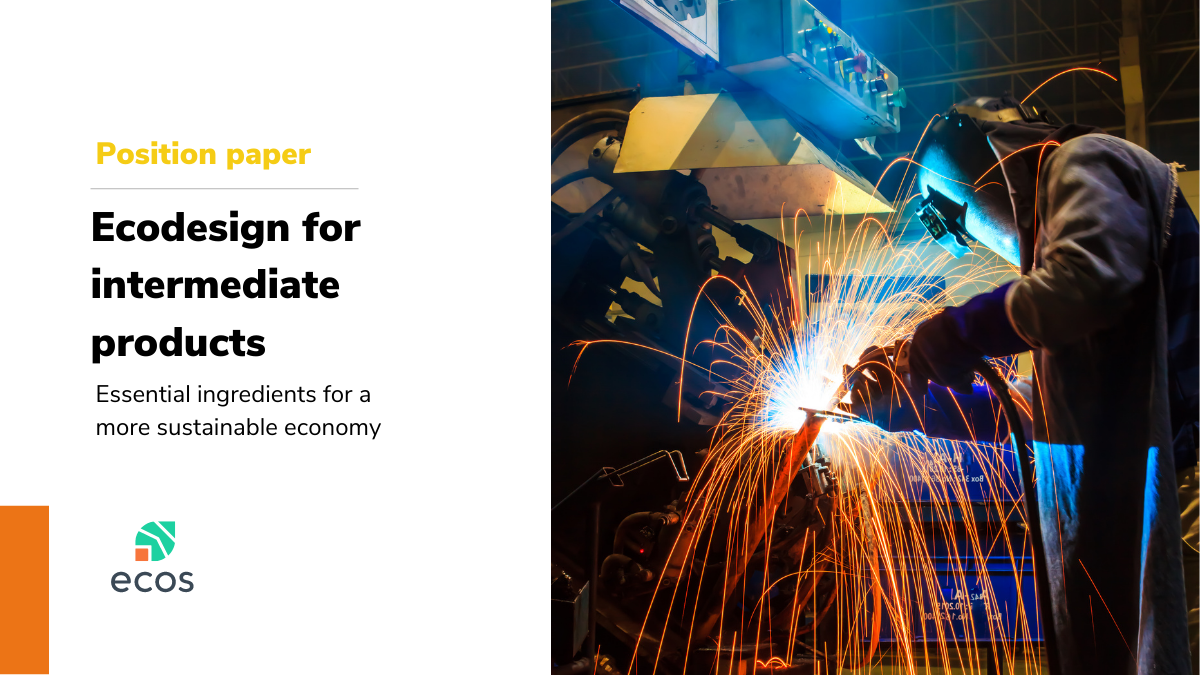New ECOS Position Paper – Ecodesign for intermediate products: essential ingredients for a more sustainable economy
ECOS calls on policymakers from the European Commission, Parliament, and Council to ensure the ESPR greens the supply of intermediate products. It is crucial to reduce the embodied impacts of intermediates to help make sustainable products the norm.

Intermediate products are unfinished goods made from steel, cement and chemicals that require further manufacturing or transformation. They are produced by energy-intensive industries and used in almost all sectors – including construction and automotive. Beyond substantial CO2 emissions, intermediary product manufacturing has a range of harmful embodied environmental impacts – including water, land and air pollution, as well as unsustainable use of natural resources. Based on the success of the Ecodesign Directive, applying the Ecodesign for Sustainable Products Regulation (ESPR) to intermediate products is a unique opportunity to ensure we kickstart a deep industrial transformation and accelerate progress towards climate neutrality.
The ESPR is the central regulation of the Sustainable Products Initiative (SPI)1, announced by the European Commission in March 2022, and aimed at making sustainable products the norm in the EU.
Key recommendations for policymakers:
- Tailored ecodesign requirements:
- Introduce mandatory ecodesign requirements on information and performance;
- Adopt Paris-aligned minimum environmental performance requirements;
- Establish ‘2050 classes of performance’ to easily communicate the environmental performance of intermediate products andits compatibility with EU and global climate targets for 2050;
- Introduce minimum functional performance requirements;
- Set requirements targeting material composition to foster a non-toxic and circular economy;
- Include mandatory requirements for assessing ecodesign requirements as a basis for ambitious Green Public Criteria (GPP) for all product groups.
- Ensuring effective implementation of the ESPR:
- Ensure a full lifecycle approach to sustainability from cradle to grave;
- Accelerate the foreseen workplan for regulation of intermediate products;
- Strengthen the legislative basis for evaluating and setting ambitious requirements on intermediate products.
- Evolution of the ESPR for intermediate products:
- Regular review of ecodesign requirements;
- Greater support for more sustainable business models.
In summary, the ESPR should require manufacturers to improve the environmental sustainability of their intermediary products.

 By
By  By
By 
